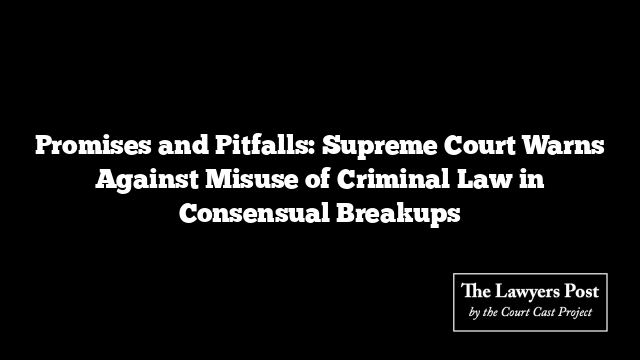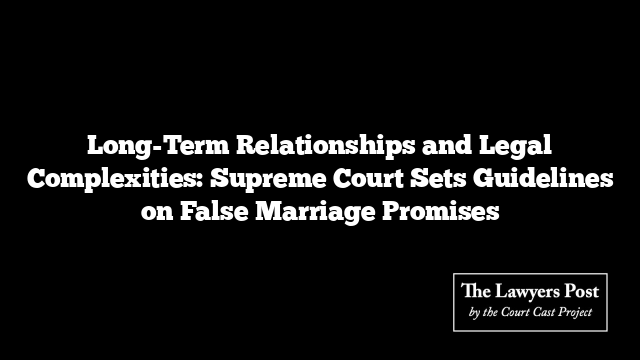The Supreme Court has voiced concern over an emerging trend of weaponizing criminal law against men following the breakdown of consensual relationships, particularly in cases involving accusations of rape under the pretext of false marriage promises.
In a decision quashing a rape case FIR, a bench comprising Justices BV Nagarathna and N Kotiswar Singh emphasized that prolonged consensual relationships turning sour should not be hastily criminalized. They noted this practice risks conflating civil disputes with criminal intent, leading to grave consequences.
The Court stated, “Attaching criminality to such prolonged relationships at a later stage can have serious repercussions, enabling misuse of stringent legal provisions. This necessitates judicial caution to avoid attributing malicious intent to what might be a disturbed civil association.”
In the case under review, the appellant challenged the Bombay High Court’s refusal to quash an FIR filed against him. The complainant alleged that the appellant engaged in a nearly decade-long sexual relationship under the false promise of marriage. She accused him of offenses under multiple sections of the Indian Penal Code, including rape and cheating.
The appellant argued that the relationship was consensual, and the allegations surfaced only after he ceased providing financial support to the complainant. The Court agreed, concluding that the decade-long relationship, maintained without consistent objection, reflected mutual consent rather than coercion. The Court found no prima facie evidence that the physical relationship was solely predicated on a promise of marriage or involved any deception at its inception.
Addressing the complainant’s claim of consent being vitiated by a “misconception of fact,” the judgment clarified that criminal liability for such cases must hinge on clear evidence that the relationship was purely contingent on the alleged false promise. The Court observed that personal preferences or affection could also motivate such relationships, and a prolonged consensual bond could not automatically imply coercion.
The judgment concluded, “Without a direct nexus between the alleged promise of marriage and the physical relationship, and in the absence of consistent protest or deception, it cannot be said that consent was vitiated under a misconception of fact.” Additionally, the Court found no grounds to sustain allegations of cheating, intentional insult, or intimidation.
The appeal was consequently allowed, underscoring the need for measured judicial scrutiny in cases where civil disputes risk being escalated into criminal allegations.





